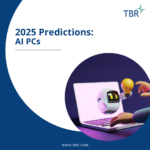Emerging Consultancy Trends: Talent Management and Innovation in the Spotlight
Technology continues to threaten the nature of consulting engagements, requiring consultancies to showcase value and deliver on outcomes. Greater investment in talent frameworks, structure and skill will equip staff to lead client discussions and effectively leverage technology to assist workflows. Partnerships remain a core piece of the technology integration, bringing in new expertise and go-to-market opportunities that enable consultancies to meet a wider variety of client needs. Client retention remains a priority across consultancies but will require the firms to effectively deliver value through services.
Consultancies Will Experience a Shift in Traditional Consulting Services as Technology Is Further Embedded in the Market
Consultancies will manage talent more closely to reach higher quality standards
Consultancies refreshed their network of centers, including new operations with partners as well as those designed for internal use. As the consultancies look to bring both talent and clients in-office to work more collaboratively, improve communication and enhance the culture, the new centers serve as a path to facilitate interactions and engagement.
In a joint investment, Microsoft and KPMG opened an Operational Risk Skills Development Center in Quebec, followed by a national rollout of the training center supporting Canadian clients’ efforts to take advantage of generative AI (GenAI) responsibly. KPMG also recently announced the opening of a European Union (EU) AI Hub in Ireland. The AI hub is located inside one of the firm’s Innovation Hubs and is set to house 200 employees with skills in risk, regulatory services and cybersecurity. The AI hub will leverage KPMG’s Trusted AI framework and use technology from Microsoft and Cranium (an AI security startup that was spun out from KPMG Studio in 2023).
IBM Consulting has poured investment dollars into training and building a network of hybrid cloud and AI talent globally, including IBM’s launch of an AI Center of Excellence in Abu Dhabi, United Arab Emirates, in January 2023 in partnership with the Mohamed bin Zayed University of Artificial Intelligence.
Watch On Demand: $130+ Billion Emerging India Opportunity – Who Wins and Why in India-centric vs. Global IT Services Firms
With a return to in-person discussions and conversations, PwC strengthened its center network to emphasize technology solutions. For example, PwC established a Cyber Managed Services Center in Cork, Ireland; added a GenAI business center to its Luxembourg experience center; and opened an AI excellence center in Saudia Arabia.
Accenture announced the openings of GenAI studios in Chicago, Houston, New York, San Francisco, Toronto and Washington, D.C. Accenture Federal Services opened a Cybersecurity Center of Excellence (CoE) in partnership with Google in Washington, D.C., highlighting Accenture’s balanced approach to pragmatism and innovation executed through a well-oiled command-and-control culture.
Capgemini announced it had signed a strategic agreement with Amazon Web Services (AWS) to accelerate the adoption of GenAI solutions across organizations. The agreement focuses on helping clients gain knowledge around and realize the value of GenAI in business processes. Together, the two companies will move clients from pilots to production by leveraging Capgemini’s network of AWS CoEs. The partners will fast-track the deployment of industry-specific solutions, assets and accelerators, and create functional use cases through Amazon Bedrock.
New leadership will facilitate the evolution of traditional consulting services
With the appointment in July of a new PwC global chairman, Mohamed Kande, who was formerly the company’s Global Advisory and U.S. Consulting Solutions leader, TBR expects sustained and possibly increased investment in advisory and consulting capabilities across the global network, even as the consulting market overall continues to stagnate. Combined with the announcement of new leadership teams in a number of major territories, including the U.S. and the U.K., a new PwC strategy — to update the firm’s 3-year-old The New Equation strategy — will likely re-emphasize the PwC brand and lean into the firm’s technology expertise.
Janet Truncale became EY global chair and CEO on July 1, and TBR expects her top priority will be strengthening the company’s talent base, in part by continuing the EY Badges program and leading with its “better working world” strategy.
In February McKinsey & Co. partners re-elected Bob Sternfels as the firm’s global managing partner after three voting rounds. Sternfels has provided some stability to McKinsey in the last few years and will likely continue prioritizing quality over quantity, slowing its hiring efforts and fine-tuning the firm’s existing expertise to meet new demands in a GenAI age.
Across all three firms, in TBR’s view, new leadership (or consistent leadership, in McKinsey’s case) has been welcomed at the senior level and seen as necessary in light of post-pandemic changes to the consulting and professional services market.
In APAC, management consultancies have seen some leadership changes as well. EY Australia recently announced four new appointments: the leads for consulting in Australia; supply chain for Oceania; Asia Pacific financial services; and private equity consulting. Notably, only two of the people appointed to those four positions have been with EY for more than a few years.
In May EY Australia announced Katherine Boiciuc as the firm’s new chief technology officer. Earlier in the year, Boston Consulting Group (BCG) in Australia and New Zealand announced a number of senior-level promotions, including Stephen Hosie (healthcare, private equity and public sector), Whitney Merchant (gas, including liquefied natural gas), Lachlan McDonald (mining, oil & gas, manufacturing, and construction), and James Argent (managing director and partner). BCG also appointed Kelly Newton to serve as comanaging partner in New Zealand. Rounding out the region, KPMG appointed David Rowlands as global head of AI, in addition to the promotion of Tim Robinson to lead the firm’s technology consulting practice in Australia.
Partnerships require additional differentiation to drive value for clients
Differentiation will be key for consultancies to prove value tied to partner technologies including AI, GenAI, digital and cloud. Leaning on centers and talent to communicate the value and possibility of their services will provide consultancies with a slight advantage, but the firms will also need to partner around core AI and GenAI capabilities in addition to offering implementation and management services.
Post-pandemic management consultancies, particularly the Big Four, have expanded the scope and composition of their partner ecosystem, focusing primarily on key technology vendors including Google Cloud, AWS, SAP and Microsoft, as well as niche providers. Consultancies have trained their own staff around partners’ capabilities, as well as accelerated the opening of dedicated centers to facilitate adoption and transformation rooted within different solutions.
- KPMG US runs a global Oracle operating model backed by a Global Oracle Center of Excellence, and the firm recently launched a Global Oracle EMEA Hub to capitalize on growth in that market. KPMG Delivery Network hubs, located across LATAM, EMEA and APAC, are supported by over 8,500 Oracle consultants, including more than 700 Oracle Cloud Infrastructure-certified consultants. KPMG also opened a CoE with Google Cloud to combine Google Cloud’s AI technologies with KPMG’s industry and functional knowledge.
- PwC also partnered with Google Cloud, but through a different avenue, focusing on tax compliance and analytics. The partnership also dovetails with PwC’s efforts to complement its existing strengths around tax, workforce transformation, customer experience and HR processes. In addition, PwC teamed with Microsoft to open an AI CoE in Saudi Arabia with the goal of developing AI skills and supporting recruitment. The center will host a recruiting program every two months, bringing in new talent to support portfolio expansion.
With partnerships among the consultancies and vendors pursuing similar goals and initiatives, differentiation from the consultancies will be key to their success in scaling new technology and remaining go-to partners for their clients. The CoEs and certified talent provide an avenue for consultancies to immerse clients within the culture and company values in addition to exposure to the services and solutions.

 Nzphotonz, Getty Images via Canva Pro
Nzphotonz, Getty Images via Canva Pro Technology Business Research, Inc.
Technology Business Research, Inc. Designer491, Getty Images via Canva Pro
Designer491, Getty Images via Canva Pro